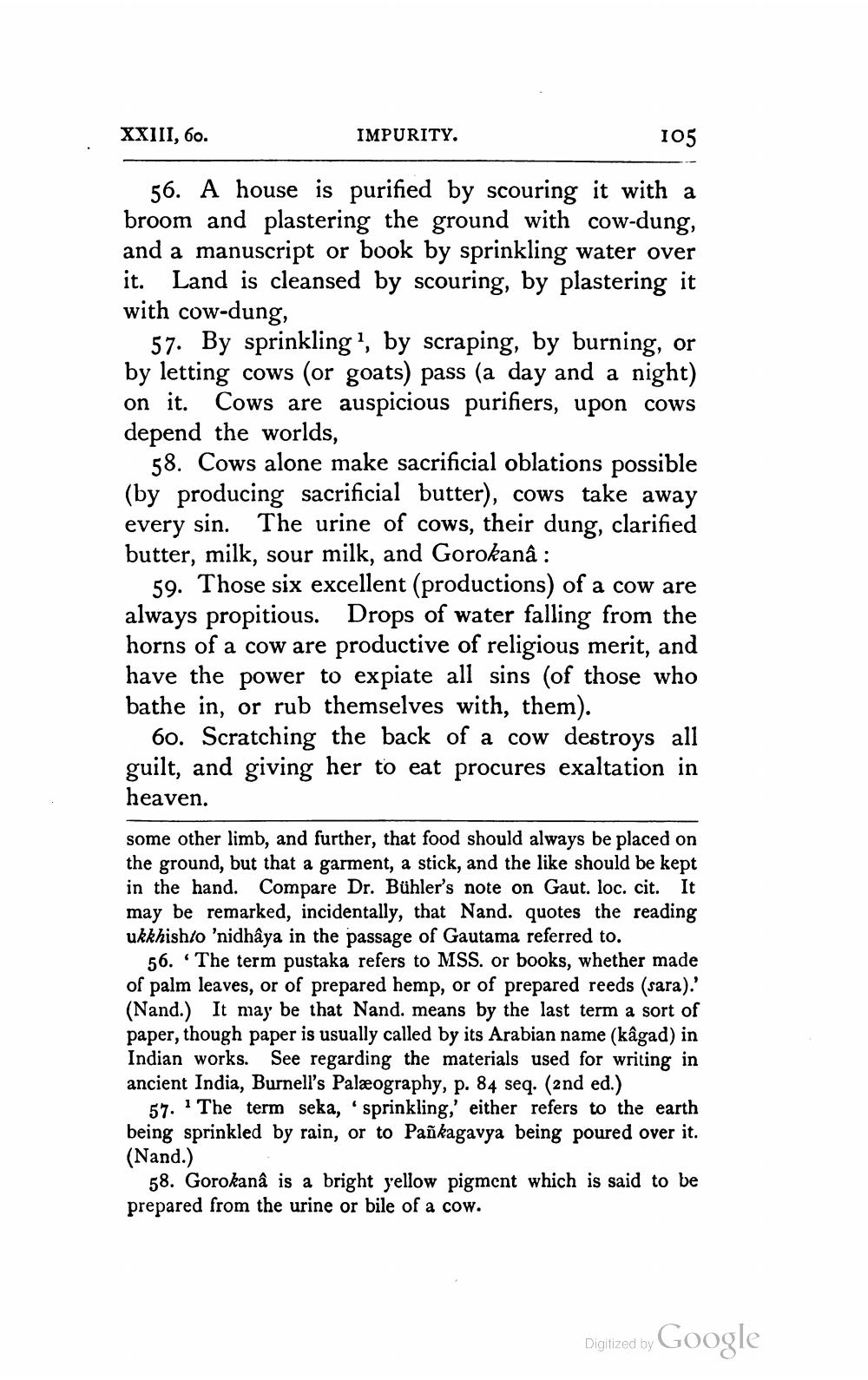________________
XXIII, 60.
IMPURITY.
105
56. A house is purified by scouring it with a broom and plastering the ground with cow-dung, and a manuscript or book by sprinkling water over it. Land is cleansed by scouring, by plastering it with cow-dung,
57. By sprinkling !, by scraping, by burning, or by letting cows (or goats) pass (a day and a night) on it. Cows are auspicious purifiers, upon cows depend the worlds,
58. Cows alone make sacrificial oblations possible (by producing sacrificial butter), cows take away every sin. The urine of cows, their dung, clarified butter, milk, sour milk, and Gorokanâ :
59. Those six excellent (productions) of a cow are always propitious. Drops of water falling from the horns of a cow are productive of religious merit, and have the power to expiate all sins (of those who bathe in, or rub themselves with, them).
60. Scratching the back of a cow destroys all guilt, and giving her to eat procures exaltation in heaven. some other limb, and further, that food should always be placed on the ground, but that a garment, a stick, and the like should be kept in the hand. Compare Dr. Bühler's note on Gaut. loc. cit. It may be remarked, incidentally, that Nand. quotes the reading ukkhisho 'nidhaya in the passage of Gautama referred to.
56. The term pustaka refers to MSS. or books, whether made of palm leaves, or of prepared hemp, or of prepared reeds (sara).' (Nand.) It may be that Nand. means by the last term a sort of paper, though paper is usually called by its Arabian name (kâgad) in Indian works. See regarding the materials used for writing in ancient India, Burnell's Palæography, p. 84 seq. (2nd ed.)
57. The term seka, sprinkling,' either refers to the earth being sprinkled by rain, or to Pañkagavya being poured over it. (Nand.)
58. Gorokanâ is a bright yellow pigment which is said to be prepared from the urine or bile of a cow.
Digitized by Google




